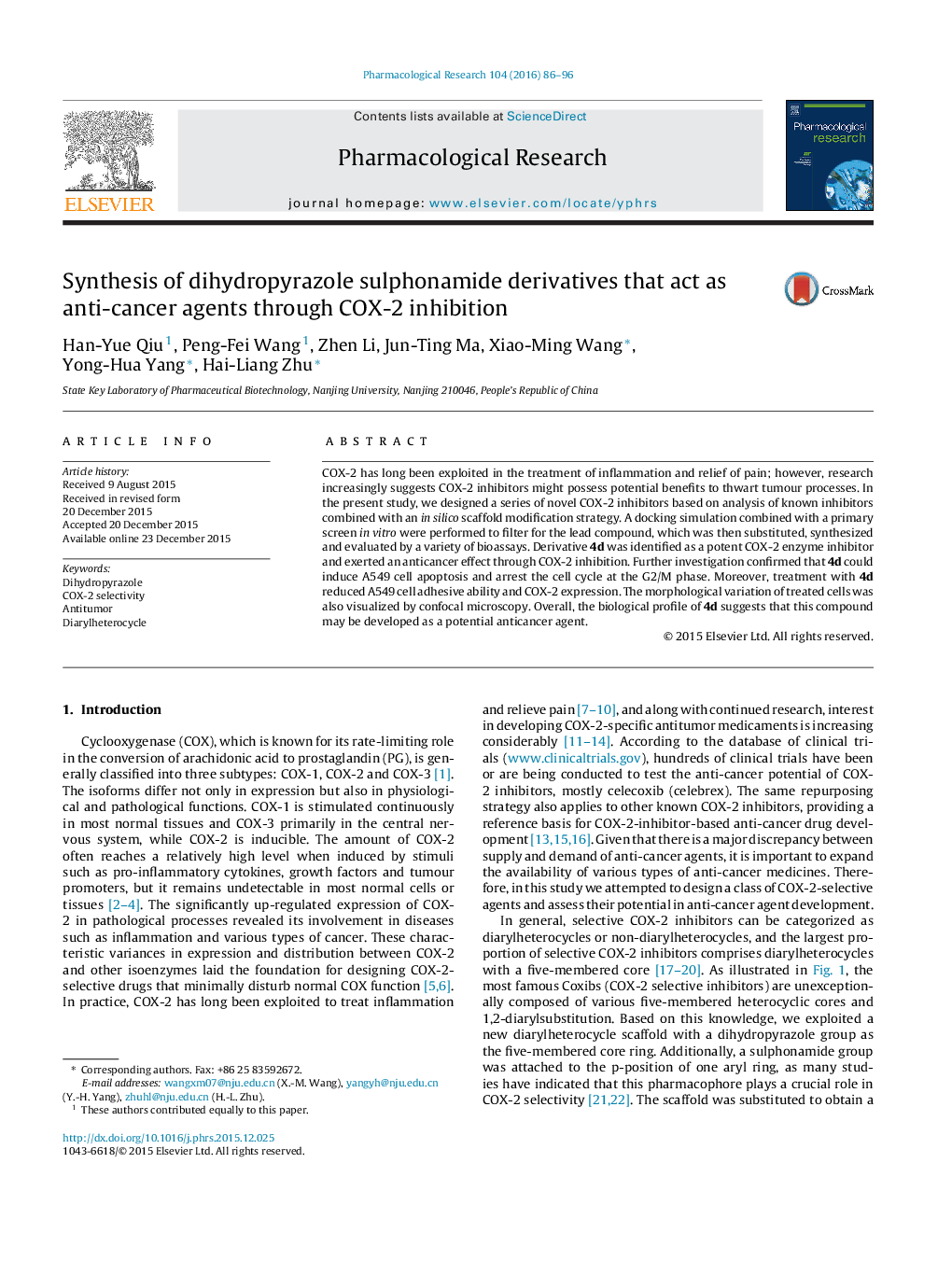| Article ID | Journal | Published Year | Pages | File Type |
|---|---|---|---|---|
| 5842988 | Pharmacological Research | 2016 | 11 Pages |
COX-2 has long been exploited in the treatment of inflammation and relief of pain; however, research increasingly suggests COX-2 inhibitors might possess potential benefits to thwart tumour processes. In the present study, we designed a series of novel COX-2 inhibitors based on analysis of known inhibitors combined with an in silico scaffold modification strategy. A docking simulation combined with a primary screen in vitro were performed to filter for the lead compound, which was then substituted, synthesized and evaluated by a variety of bioassays. Derivative 4d was identified as a potent COX-2 enzyme inhibitor and exerted an anticancer effect through COX-2 inhibition. Further investigation confirmed that 4d could induce A549 cell apoptosis and arrest the cell cycle at the G2/M phase. Moreover, treatment with 4d reduced A549 cell adhesive ability and COX-2 expression. The morphological variation of treated cells was also visualized by confocal microscopy. Overall, the biological profile of 4d suggests that this compound may be developed as a potential anticancer agent.
Graphical abstractA series of novel COX-2 inhibitors was designed and synthesized as antitumor agents based on the knowledge of known COX-2 inhibitors and in silico scaffold modification strategy.Download high-res image (108KB)Download full-size image
